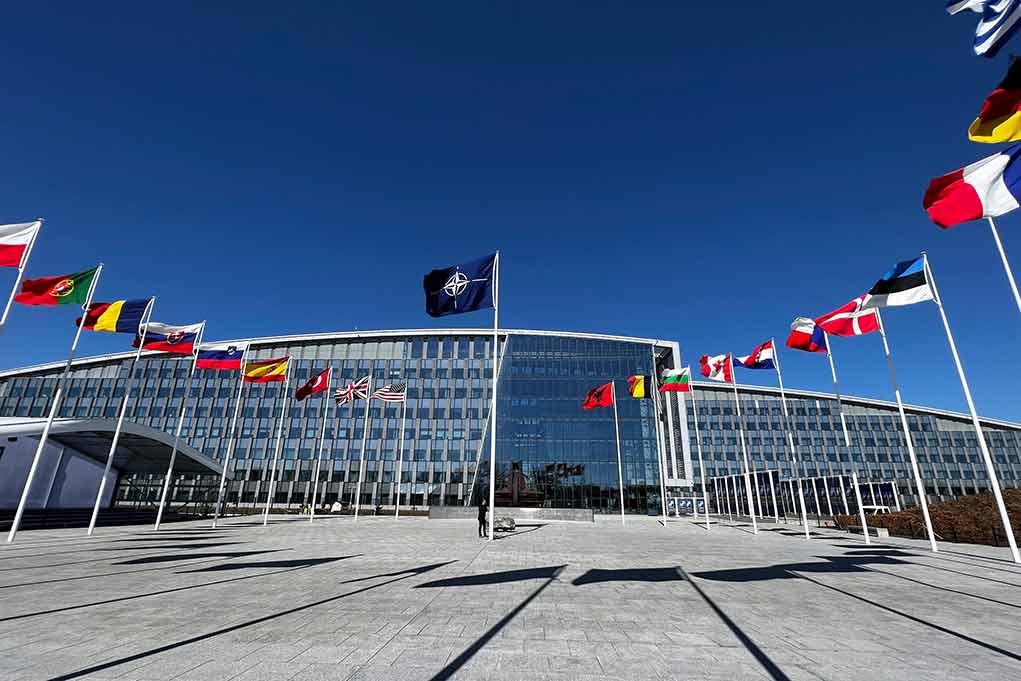
Spain’s Prime Minister Pedro Sánchez demands special treatment from NATO as he refuses to meet the 5% defense spending goal while enjoying protection from allies who do pay their fair share.
Key Takeaways
- Spain has formally requested an exemption from NATO’s proposed 5% defense spending target, despite currently spending just 1.3% of GDP on defense, the lowest in the alliance.
- Prime Minister Pedro Sánchez claims the higher target would force Spain to sacrifice welfare programs, increase taxes, and hamper green initiatives.
- President Trump and NATO Secretary-General Mark Rutte are pushing for the increased spending target to strengthen collective security against growing global threats.
- Spain’s socialist government, in coalition with the anti-military spending Sumar party, prefers developing its own defense industry rather than meeting immediate NATO obligations.
- While Sweden commits to reaching the 5% target by 2032 with significant borrowing, Spain seeks special treatment rather than equal burden-sharing.
Spain’s Refusal to Meet NATO Obligations
As NATO prepares for its upcoming summit in The Hague, Spain has formally requested an exemption from the alliance’s proposed 5% defense spending goal. Prime Minister Pedro Sánchez has communicated to NATO Secretary-General Mark Rutte that Spain cannot commit to this higher spending threshold, claiming it would harm the country’s strategic interests. This position puts Spain at odds with most NATO members as the alliance faces increasing global security challenges requiring greater military readiness and capability development across member nations.
“Spain wants a carve-out from NATO’s likely future defense spending goal of 5 percent of GDP, the country’s Prime Minister Pedro Sánchez said ahead of next week’s high-stakes alliance summit in The Hague,” stated Pedro Sánchez, Prime Minister of Spain.
Spain currently allocates just 1.3% of its GDP to defense spending, significantly below the 2% minimum threshold established in 2014, making it the lowest military spender in the entire NATO alliance. While other member nations have worked diligently to increase their defense budgets in response to growing threats from Russia, China, and other adversaries, Spain has consistently fallen short of its commitments. Now, as President Trump and other NATO leaders push for a more robust 5% target, Sánchez is seeking special treatment rather than assuming an equal share of the collective defense burden.
Socialist Politics Over Security Obligations
The Sánchez government’s resistance to increased defense spending is deeply rooted in its socialist politics and coalition dynamics. Sánchez’s Socialist party governs in partnership with the far-left Sumar party, which fundamentally opposes military spending increases. This political reality has led Sánchez to prioritize domestic political considerations over Spain’s international security obligations. His government has openly stated that higher defense spending would negatively impact Spain’s welfare system, potentially increase taxes, and affect climate initiatives and international development programs.
“Spain will continue to fulfil its duty in the years and decades ahead and will continue to actively contribute to the European security architecture. However, Spain cannot commit to a specific spending target in terms of GDP at this summit,” stated Pedro Sánchez, Prime Minister of Spain.
NATO’s Consensus Challenge
NATO’s decision-making process operates on consensus, allowing any member nation to effectively veto alliance decisions. This creates a significant challenge when addressing defense spending requirements, as countries like Spain can obstruct efforts to strengthen collective security. While Spain’s Defense Minister has indicated the country won’t block the 5% target outright, seeking a special exemption accomplishes essentially the same goal by undermining the principle of shared responsibility that forms the foundation of the alliance’s collective defense model.
“Of course, it is not our intention to limit the spending ambitions of other allies or to obstruct the outcome of the upcoming summit,” stated Pedro Sánchez, Prime Minister of Spain.
The contrast between Spain’s approach and that of other NATO members is striking. Sweden, for example, has committed to meeting the 5% target by 2032, planning to borrow 300 billion krona to achieve this goal. While Sweden demonstrates serious commitment to collective security, Spain offers excuses about preserving welfare programs and developing its indigenous defense industry. In reality, Spain’s position appears to be one of wanting the benefits of NATO membership and security guarantees without assuming an equitable share of the financial and military responsibilities that make those guarantees possible.
America First: The Push for Fair Burden-Sharing
President Trump has consistently advocated for fair burden-sharing within NATO, arguing that American taxpayers should not disproportionately fund Europe’s defense while countries like Spain fail to meet even minimal spending commitments. The proposed 5% target, supported by NATO Secretary-General Mark Rutte, would allocate 3.5% for direct military expenditures and 1.5% for defense-related items. This framework recognizes the evolving nature of security threats and the need for comprehensive defense capabilities across the alliance, making Spain’s resistance particularly problematic in an era of increasing global instability.
Spain’s justification that a rapid increase to 5% would force them to purchase off-the-shelf equipment rather than develop their domestic defense industry rings hollow. Many NATO members have successfully balanced domestic industrial development with meeting alliance obligations. Spain’s argument appears to be a convenient excuse for avoiding financial commitments while continuing to benefit from the security umbrella provided largely by American military power and those allies who do pay their fair share of defense costs.
















